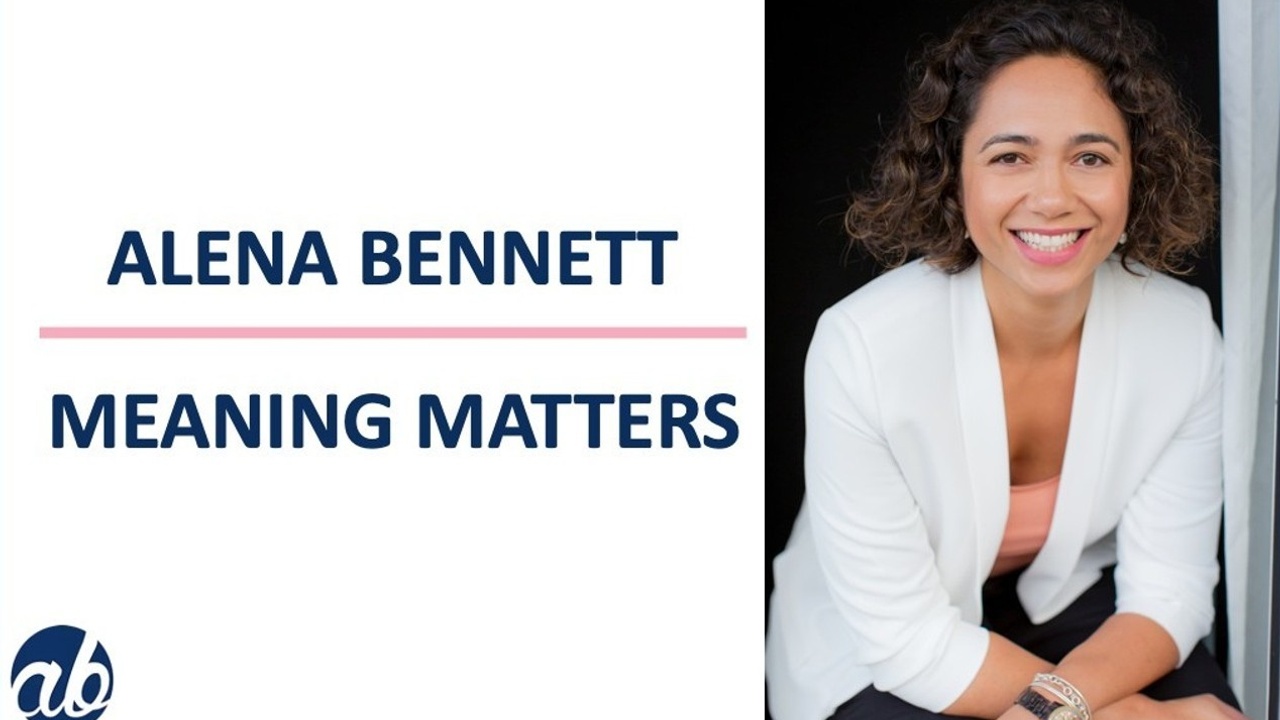This is great when you're feeling on top of your game: that is, when you're energised and standing tall. The challenge at the moment is, however, that after many many months of supporting their businesses and teams through one of the most challenging times of their lives, CFOs - like their team members - are 'hanging in there', 'struggling with my energy, but see the end in sight' or quite frankly, 'exhausted'. And as for standing, there is very little - we're spending most of the day sitting down without even the small respite that we get when we move from meeting room to meeting room.
What does that do to the shadow that we cast?
Turn around, what do you see?
Below I've described the top 3 habits that can emerge in behaviour when you're under pressure and resilience is lowered.
1. Multitasking
Earlier this week, at our CFOs Connect community event, one of the topics that came through strongly was the value of listening. The brilliant Philip Basha, CFO of Accor - Pacific, shared how one of the core values of the hotel industry was being personable which was proving to be especially important with the hospitality industry was struggling. "Communicating is so important. Calling people up and just listening to their stories. Listening to the team and celebrating the small wins' were just some of the tips he shared with us.'
Not only did this serve as a good reminder of the power of listening, but what I noticed about Phil was that at no time during the event did he appear distracted. He was walking his talk and was fully present at all times to the other CFOs 'in the room'.
We know that one of the challenges of remote meetings is all the notifications and alerts that pop-up on our screens. While this was an issue with mobile phones when we were in the office, this problem has only been exacerbated when going online. It can be tempting to just quickly respond, or to be distracted by whatever spotfire might be emerging. But don't fall into the trap. Remember, multitasking isn't a thing. When you read and respond to emails or messages when you are supposed to be present with someone or a group of people online, what you are indicating to them is 'you don't matter'.
Take a leaf out of Phil's book and be present.
2. Not having the tools of the trade
Speaking of the challenges of this 'new' remote way of working, I am reminded of a conversation I had with a CFO and his CEO. As part of the early banter, which is what 'Leverage Live Online' author, Cheryle E Walker, calls the 'arrival experience', the CEO made the offhand comment to my client, 'Have you improved your cr@ppy internet connection, mate?'. We had a laugh and moved on. But it was telling.
We've been working remotely for an extended period of time now. If you are in an executive role, it is expected that you have what you need to be effective online. It means you have the software and hardware and the ability to move around the tools effectively to do your job. If you don't, this will translate into a poor experience of you by the person on the other side of the camera. Experience impacts executive presence.
3. Getting 'relaxed' with time
One of the TV shows we have been watching recently is 'Doogie Kamealoha' which is a bit of a modern day 'Doogie Howser'. It's not animated, it's set in Hawaii and it's PG so it's a good one for the family. In one of the recent episodes, Doogie's mum walks into the house exasperated after a meeting gone wrong. She says to her family, 'I didn't have any time to give my speech on 'being efficient' so all I could say was 'Be Efficient'!'
"Don't they know this already? Just. Be. Efficient."
Sound familiar? With many of us feeling like Zoom Zombies at the moment, we're letting down our usual discipline around keeping our meetings punchy and to-time. What this plethora of online meetings has exposed is that our protocols around meetings and meeting etiquette is a big area of improvement. When we let this happen, we undermine our ability to communicate our message effectively and thus don't have the impact we want.
Which is most relevant for you?
Now, three is the golden number for a short and sharp list that is memorable. But executive presence is so important for CFOs that I want to include a bonus 4th thing.
Taking, not making opportunities
From all the conversations I've had since July when we return to the office the water cooler is going to be a popular place and the corridors will be packed! Those 'in the crack' conversations are undoubtedly the ones we're missing the most as our calendars are jam packed with meeting after meeting.
If the only time you have an opportunity to exemplify executive presence in meetings then you're doing yourself an injustice. Create ways to have presence and impact without relying on formally scheduled meetings.
There's no doubt about it. Our physical and mental health is being tested and pushed to the limit at the moment. The tightrope we need to walk is to balance how we protect ourselves while at the same time being there for the people around us. Our businesses and our people need us, as CFOs, to be on our game. We're a bit like flight attendants on a plane - I don't know about you, but when there's massive turbulence, I always look to them and study their expressions.
As was so eloquently put by my amazing client, Mike Meyer, CFO of Snackbrands foods, "CFOs are the barometer of the business".
People are studying us. Even when it's hard.
What shadow do you want to cast?
What changes do you need to make?
What support do you need? There's no denying it's hard right now.



